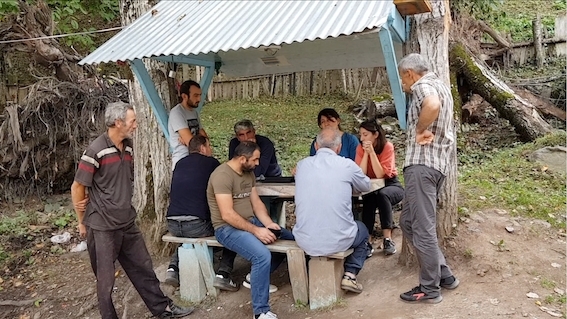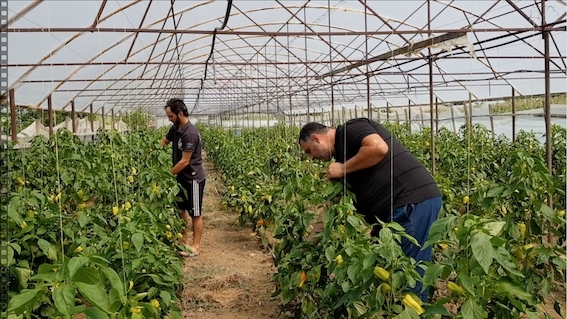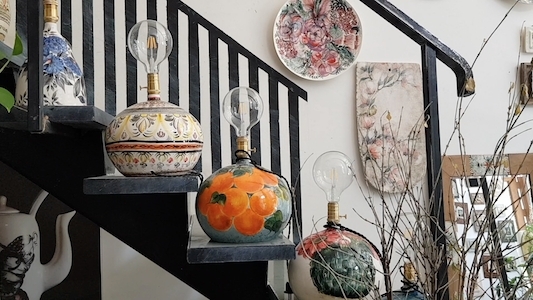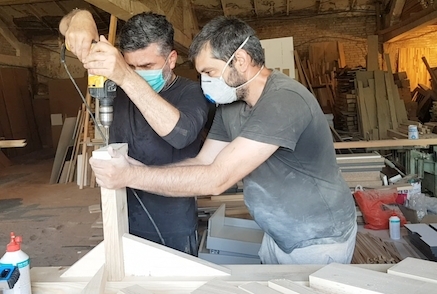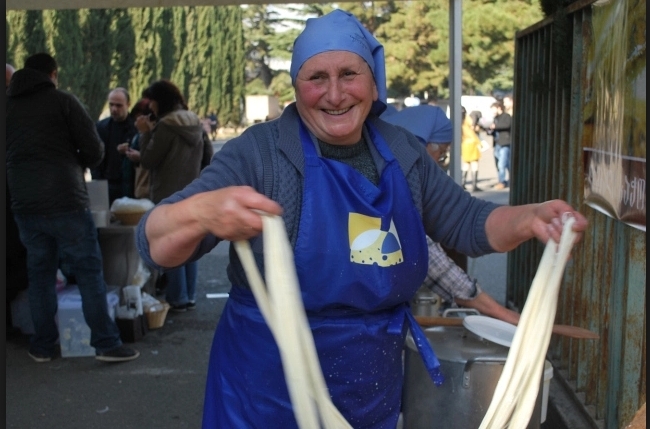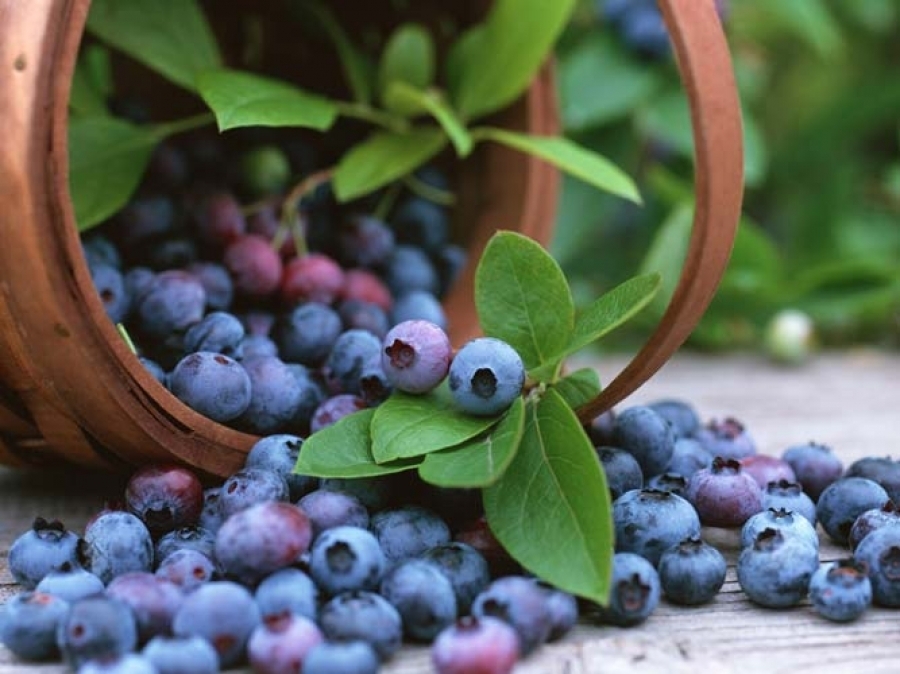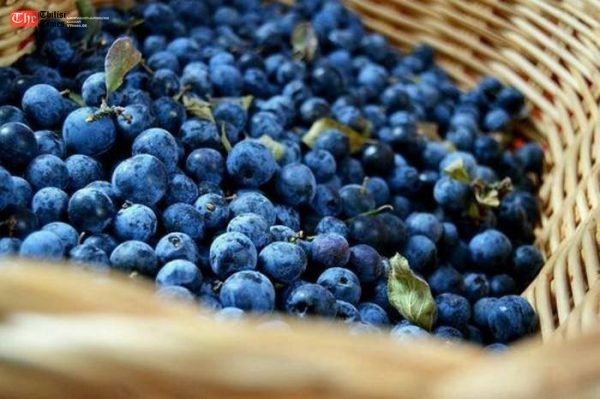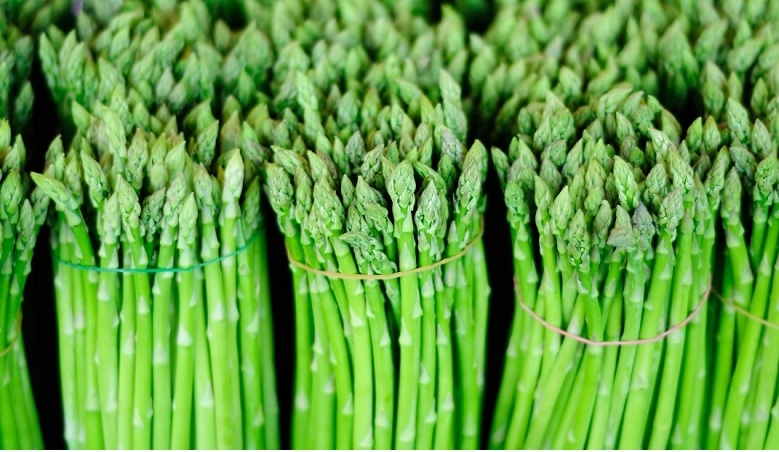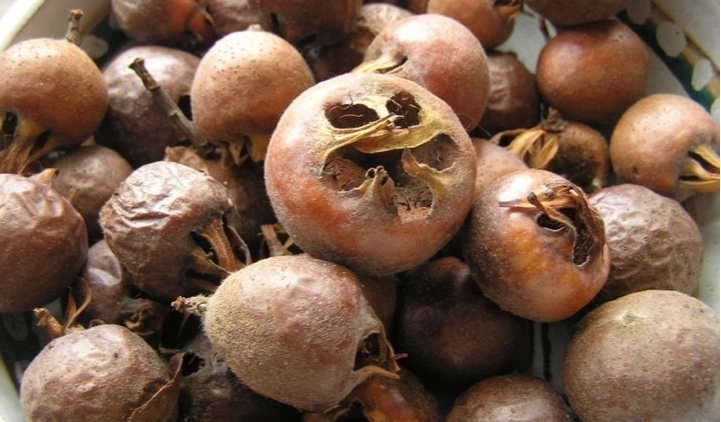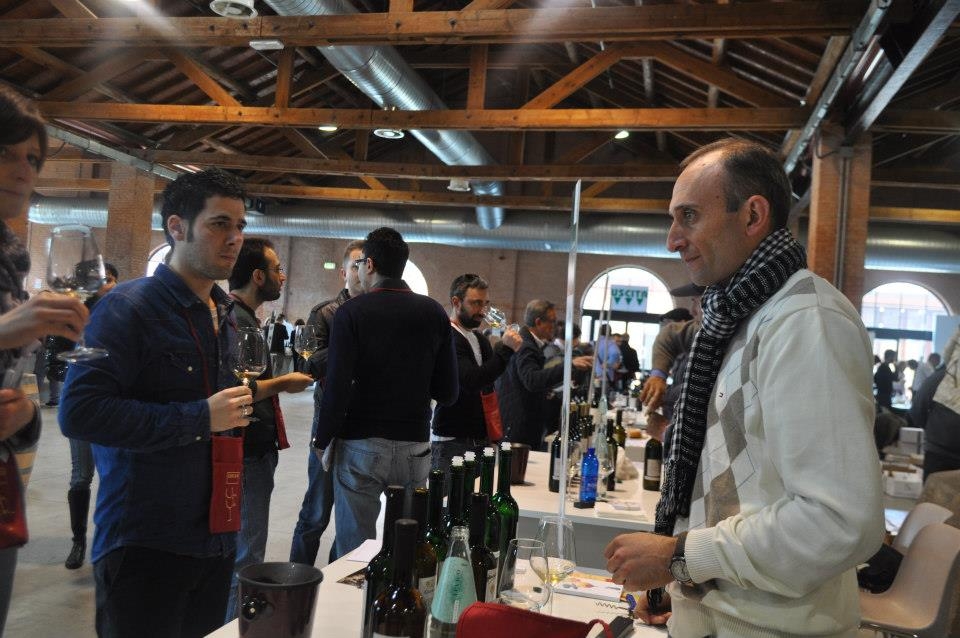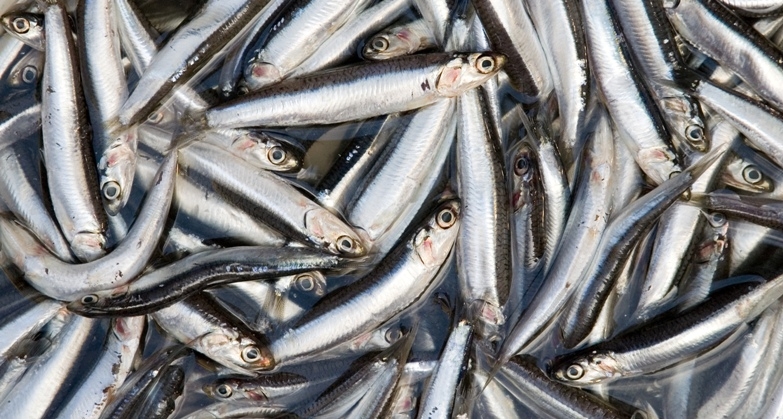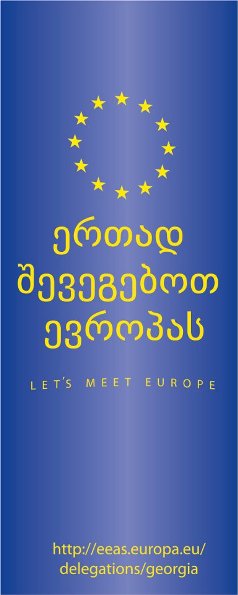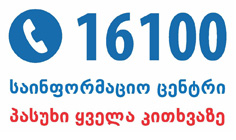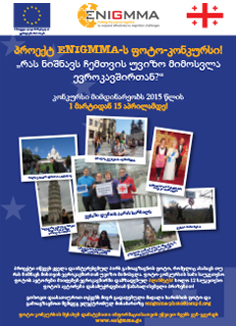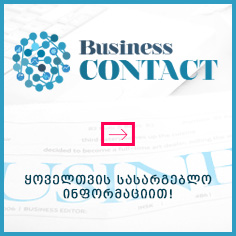Honey Production, Export, and hindering Factors
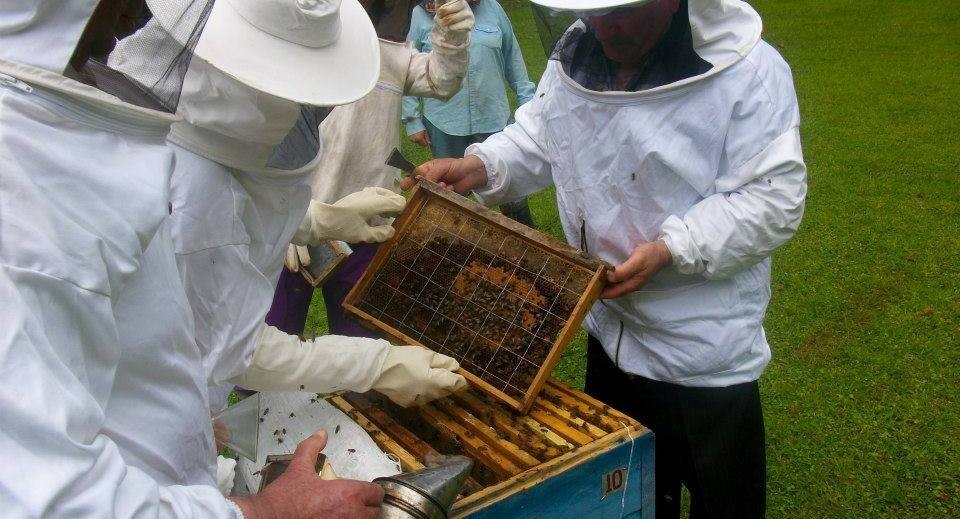
EU representatives inspected the production of honey in Georgia and concluded that honey is one of the best-placed Georgian products, along with hazelnuts and wine, for entering EU markets. Now, it’s essential for the laboratory at the Ministry of Agriculture to start scrupulous honey testing as well as for the Entrepreneurship Development Agency at the Ministry of Economy to allocate sums for small and medium enterprises with EU assistance. The Ministry of Economy has yet to develop an action plan for supporting SMEs, although finances to provide for this have already been allocated by the European Union.
The EU Association and Deep and Comprehensive Free Trade Area Agreements enable Georgia to export 1,500 tons of honey to EU markets every year. According to EU experts, honey has the best chance of making a hit in Europe. So why is honey the easiest product to export to Europe? How are the state and the Beekeepers’ Guild of Georgia working towards this end?
The demand for honey in the EU is growing by six percent every year, with 55 percent of the honey consumed in Europe, that is, about 150,000 tons, imported from other countries, according to Omar Kacharava, Advisor to the Minister of Agriculture.
Today Georgia produces about 4,000 tons of honey with peak exports - 17 tons valued at 116,700 USD) - in 2013. Last year, Georgian beekeepers exported 5.4 tons (valued at 54,200 USD). “This is a tiny amount compared to what Georgia could be exporting” Omar Kacharava told www.eugeorgia.info.
In the past few years, Georgian honey has been exported mainly to Libya, the United Arab Emirates, Saudi Arabia, Iraq, and Lebanon. Last year, China and the Republic of Korea joined this list. Last year, 0.3 and 0.1 tons of honey were exported to China and Korea, respectively. PutkaraLLC is the main exporter of honey. “Our main clients are Arab and Asian countries. We have received numerous offers from EU member states as well. The first offer came from one of the largest Austrian distribution companies five years ago. They praised Georgian honey, but they insisted on monofloral honey, that is, honey from the nectar of one plant species. In Georgia, however, mainly multifloral honey is produced. At that moment, we realized that entering the EU market would not be all that easy,” Mikheil Tetruashvili (Director of the PutkaraBeekeeping Development Group) says.
Abraam Solomnishvili (the founder of the Agro Apis beekeeping cooperative) also received an offer to bring Georgian honey in France. This company was founded by eight beekeepers in 2011. Their apiary of 160 families is arranged in the village of Vazisubani, Gurjaani District. “We were contacted by a French cooperative of 85 beekeepers. They are not limited to local production only. The cooperative buys honey in other countries as well and sells processed products across the European Union. They liked our honey and were ready to buy it. To this end, however, we had to supply 20 tons at one time, which we could not do at the time. One beekeeper cannot collect 20 tons of honey. It takes a union of beekeepers,” Solomnishvili says.
Some beekeepers believe that the high price of Georgian honey may also prevent its export to Europe. One kilo of Georgian honey costs 10-25 GEL on the local market. In the European Union, Argentinian honey is sold for only three euro per kilo. Chinese honey is even cheaper, at about two euro per kilo. “The Austrians inquired about the price. We offered them our price, five euro, but it seemed too high to them,- Mikheil Tetruashvili says.
According to Giorgi Kepashvili (head of the Breta Company and Chair of the Beekeepers’ Guild), if there is sufficient support from the government, even expensive Georgian honey could find its niche in the European market: “Georgian honey is so distinguished by its quality and taste that it will be the most expensive and valued in the EU market, if we manage to export it there. Others will have to figure out how to compete with us. However, all this will take support from the government and proper market positioning,” Kepashvili concludes.
According to Abraam Solomnishvili, French importers believe that Georgian honey is best marketed as a high-end, deluxe product:“They tasted our honey, praising its quality and saying that, in comparison with other types of honey, it would sell at a higher price. While other types cost two euro, Georgian honey could sell for six or seven euro.”
Agriculture Attaché at the European Union Delegation to Georgia Juan Echanove also emphasized the special quality and taste of Georgian honey: “Georgian honey may be more expensive than others, but its quality is much higher as well. Georgia must spare no effort to brand Georgian honey, so that European consumers may learn that it is a special type of honey, very filling and rich in different vitamins and elements. Both the government and the entrepreneur should make an all-out effort to contribute to the branding of the product.”
The Chair of the Beekeepers’ Guild says that the government must assist beekeepers in positioning Georgian honey in the European market: “We must explain to European consumers that Georgian honey is an organic product, that the Georgian bee is unique: It has won three gold medals at different exhibitions. The Georgian bee has the longest proboscis, so it can extract nectar from the deepest nectar tissues, where no other species can. Georgian flora is special, too: only three countries in the world produce chestnut honey, and one of them is Georgia. The government must produce and advertise this information on www.euronews.com. It would be a great ad, right? Stamps with the Georgian bee must be printed.” Kepashvili adds. Chestnut honey is in high demand in Azerbaijan, Turkey, and Greece. Passenger buses and small containers are mainly used to transport honey to these countries. The price is about 30 USD per kilo.
Antibiotics and Reequipping as Main Problems
The European Union has strict requirements related to honey testing. Identifying the level of antibiotics and pesticides in honey is the main requirement, however no laboratory in Georgia has the ability to test honey for these substances. .
The National Food Agency at the Ministry of Agriculture has been monitoring the quality of honey in the country since 2012. Honey samples are sent for testing to the Biori lab in Riga, Latvia - an internationally accredited facility. In 2013, 42 samples were sent to this lab. Leftover antibiotics were found in 17 of them. In 2014, 103 samples from different farms across Georgia were sent to Biori. “Lab tests are designed to protect the Georgian consumer market and to promote the export of Georgian honey to the European Union. Our main goal is to ensure against harmful products made in Georgia. From the 103 samples sent to Riga, one third, that is, 32 samples, contained antibiotics,” says Kakha Sokhadze, head of Food Safety Department.
“The results of the tests in Riga reveal that Georgian beekeepers lack professional knowledge. Around 4,000 tons of honey have been produced in Georgia in recent years and, according to our information, more than 50,000 people practice beekeeping, 99.6 percent of whom are amateurs. The expertise of amateur beekeepers is very poor. When the European Union allows you to export 1,500 tons of honey, the state must do something about enhancing knowledge about beekeeping. People who keep 20-30 families of bees cannot afford training. Quality control monitoring, which was launched in 2012, must be permanent and Georgia must have an internationally accredited laboratory with EU certification. Honey must be tested in this lab, and EU-recognized certificates must be issued based on the test results. If we fail to implement these procedures, no honey will be ever exported to the European Union. I doubt that we will export any honey to the European Union this year,” Kepashvili concludes.
Advisor to the Minister of Agriculture Omar Kacharava says that, in September 2015, the laboratory at the Ministry of Agriculture will be ready to test honey for antibiotics and pesticides in line with EU standards. According to Kacharava, the Ministry of Agriculture has already carried out training sessions for farmers. The authorities hope that honey samples collected by the agency this year will prove free from residues, and the product will be fit for export.
However, antibiotics are not the only problem. It takes a lot of money to arrange bee farms in line with EU technical regulations and requirements. Most beekeepers strain honey in aluminum or zinc centrifuges, which is strictly prohibited in the European Union. Honey producers do not have adequate storage containers either. As a rule, small quantities of honey are sold, preventing producers from accumulating revenues. “Beekeepers surely need affordable loans. The problem is that commercial banks consider domestic animals, such as cattle, or sheep, or bees, to fall into a high-risk category, and refuse to issue loans to their owners to develop their farms,” Tetruashvili says.
On January 15, 2015, the EU Support Program was launched, seeking to assist Georgia in the implementation of the DCFTA and integration into EU markets. To this end, Georgia will receive 44.5 million euro from the European Union in the next four years (25 million euro will be allocated to supportpublic funds). According to the relevant agreement, the Entrepreneurship Development Agency is obligated to assist small and medium enterprises in aligning with new regulations and standards. Yet, the agency has not developed an action plan for assisting SMEs.
Along with honey, royal jelly, honeybee venom, pollen, bee glue, beeswax, and bee bread may also be exported. “Royal jelly and bee glue are also very promising. Japan is the largest consumer of royal jelly, which is purchased by the state and given to children in order to prevent damage from widespread pollution there. French and Chinese businesspersons have taken interest in buying bee glue,” Tetruashvili added.
Due to its unique qualities, the Georgian queen bee is in high demand, though it is not exported at this point, which is why it is often smuggled abroad. On the local market, a queen bee costs 20-25 GEL. If exported abroad, its price may reach as much as 100 USD.
Famous for its biodiversity and longest proboscis in the world (up to 7.22 centimeters), the Georgian bee (Apis mellifera caucasica) has unique biological and farming qualities, which distinguish it even from the best species around the globe. Thanks to its proboscis, it extracts nectar where other species cannot reach. In mild and stable climatic conditions, one family of Georgian bees can produce up to 97 kilograms of honey. The Georgian bee is especially hardworking, capable of flying great distances, and collecting nectar even in light rain, which many other species don’t do. In addition, it is not especially aggressive, allowing beekeepers to work without protective equipment.
One of the largest bee farms, where Georgian Mountain Grey bees were bred in the Soviet period, was located in the village of Mukhuri, Chkhorotsku District and was shut down in the 1990s. According to Maia Peikrishvili (the head of the Department for the Study of Animal Husbandry, Veterinary Medicine and Food Production at the Scientific Research Center of Agriculture), unfortunately, the Georgian queen bee has found itself facing a serious danger in the country of its origin. “Improper alteration of mountain and lowland seasons, lack of professionalism in this field, and, in some cases, illegal export to foreign countries have resulted in serious obstacles to the preservation of this species in its pure form. This is why our primary goal must be the preservation of this species by carrying out the selective breeding of the Georgian queen bee. Since the day of its establishment, the center has been working on the academic topic “The Identification of Georgian Bee Populations (Megrelian, Gurian, and Kartlian) and The Promotion of the Development of Bee Farms”.
The Georgian queen bee may become an important source of revenue for the country, but it will take certain efforts: “In the 21st century, no one will be able to export bees from Georgia without genetic passports. Exported bees must have certificates issues by accredited labs. The demand for bees is growing worldwide, especially since 30 percent of the bees in the US have died.”
Georgia has enjoyed the status of a natural reserve since 1958, and importing other bee species is prohibited. However, according to the National Statistics Office of Georgia, 5,700 bees were imported from Israel, Ireland, and Turkey in January through August 2014. “This means that the law was broken. Unfortunately, these statistics do not show why these bees were imported, or where they were delivered. Thus, it is impossible to trace this process and see whether it may affect the purity of the Georgian bee,” Peikrishvili asserts.
The center has developed the restoration and development plan for bee farms. “Based on the results of expeditions to the Municipalities of Chkhorotsku and Tsalenjikha and relevant analysis, an isolated area was found in one of the sections of the Leukune-Khobistskali Gorge, and restoration works will be launched in the nearest future in the territories of the former selective breeding farm in Mukhuri. In the summer, we will resume seeking reliable hives and bee families and implementing selective breeding activities,” Alexander Kordzaia (Senior Specialist at the Department for the Study of Animal Husbandry, Veterinary Medicine and Food Production at the Scientific Research Center of Agriculture) says.
Official Statistics
According to the National Statistics Office of Georgia, six times more honey was exported from Georgia in 2013 (17 tons priced at 116.7 thousand USD) than in 2012 (2.7 tons priced at 29.2 thousand USD).
Azerbaijan (2.6 tons) and Libya (12.9 tons priced at 62.4 thousand USD) were the largest export markets in 2012 and 2013, respectively.
Local honey produiction yielded 4,200 tons in 2010, 2,700 tons in 2011, 4,100 tons in 2012, and 3,900 tons in 2013.
In 2014, honey was exported from Georgia to five countries: 4.3 tons to Saudi Arabia, 0.1 tons to the United Arab Emirates, 0.6 tons to Hong Kong, 0.3 tons to China, and 09.1 tons to Korea.
Manana Vardiashvili

